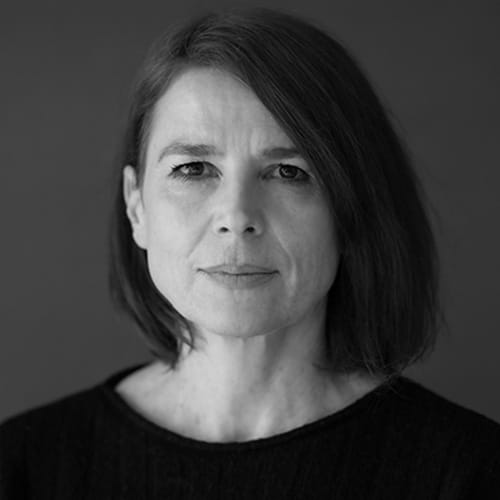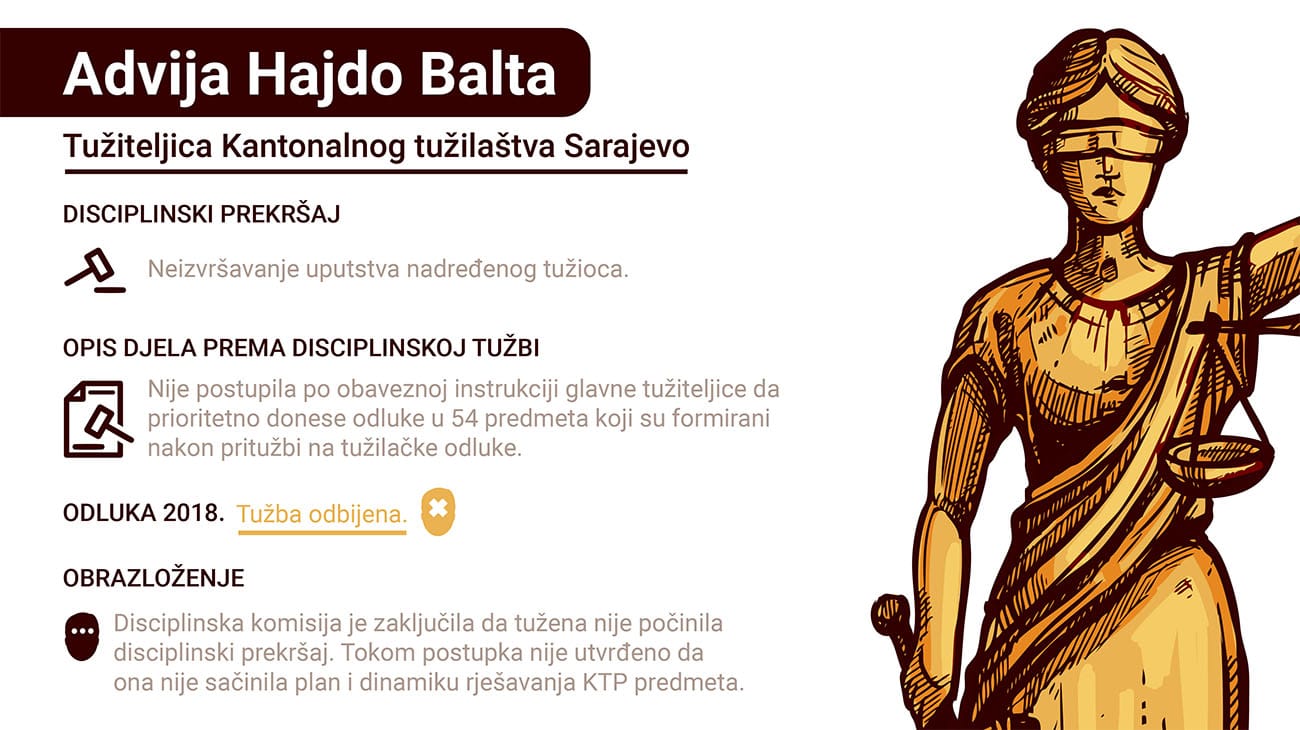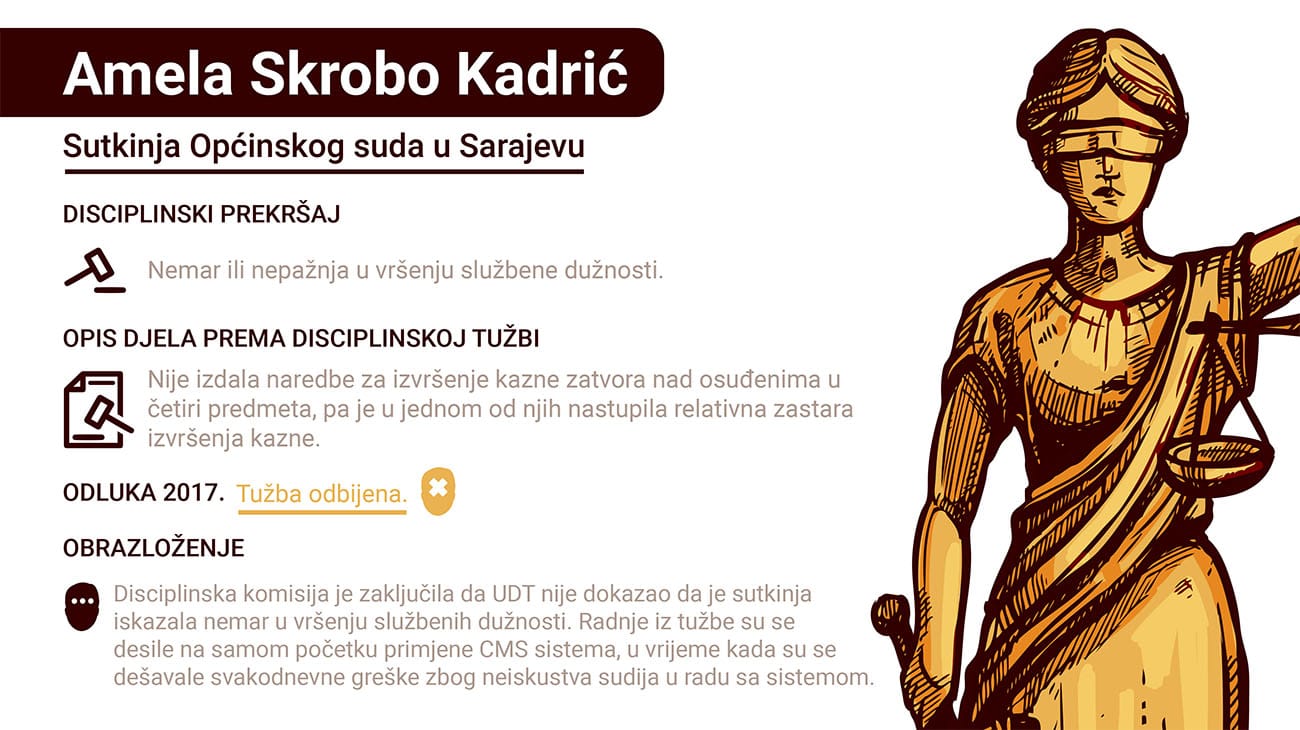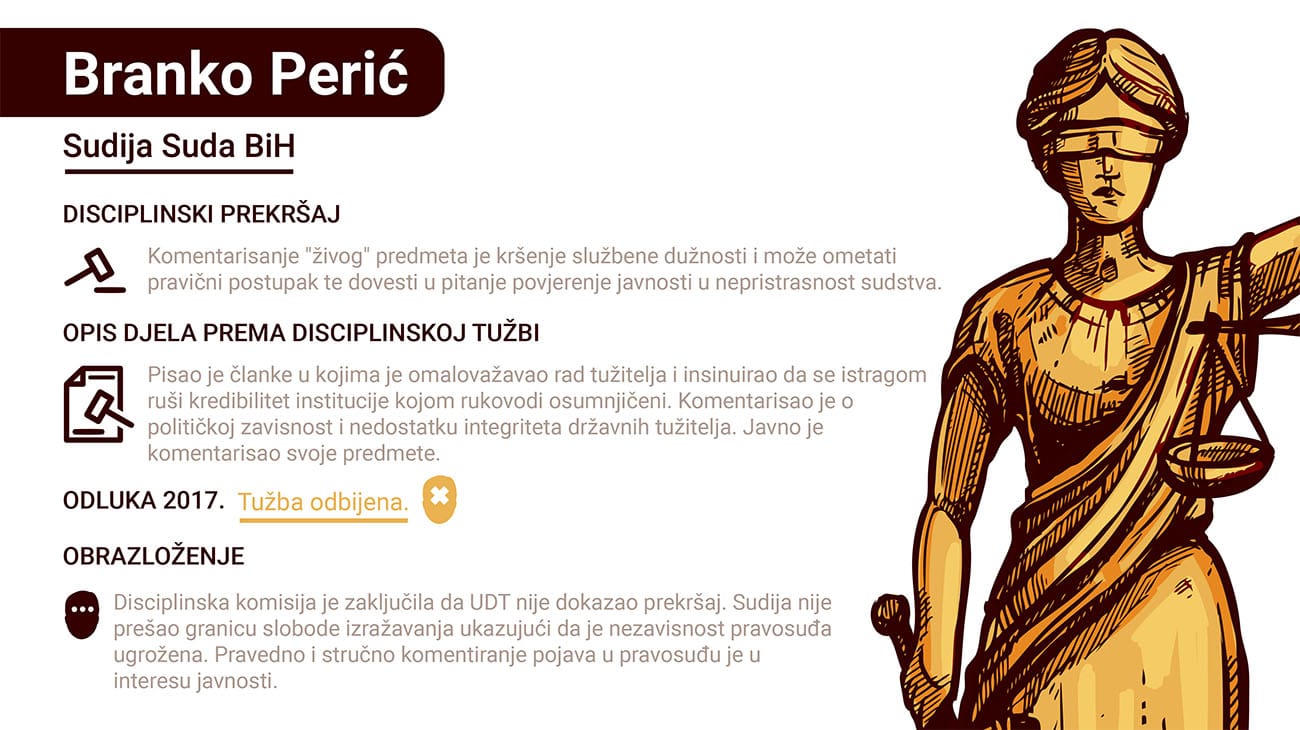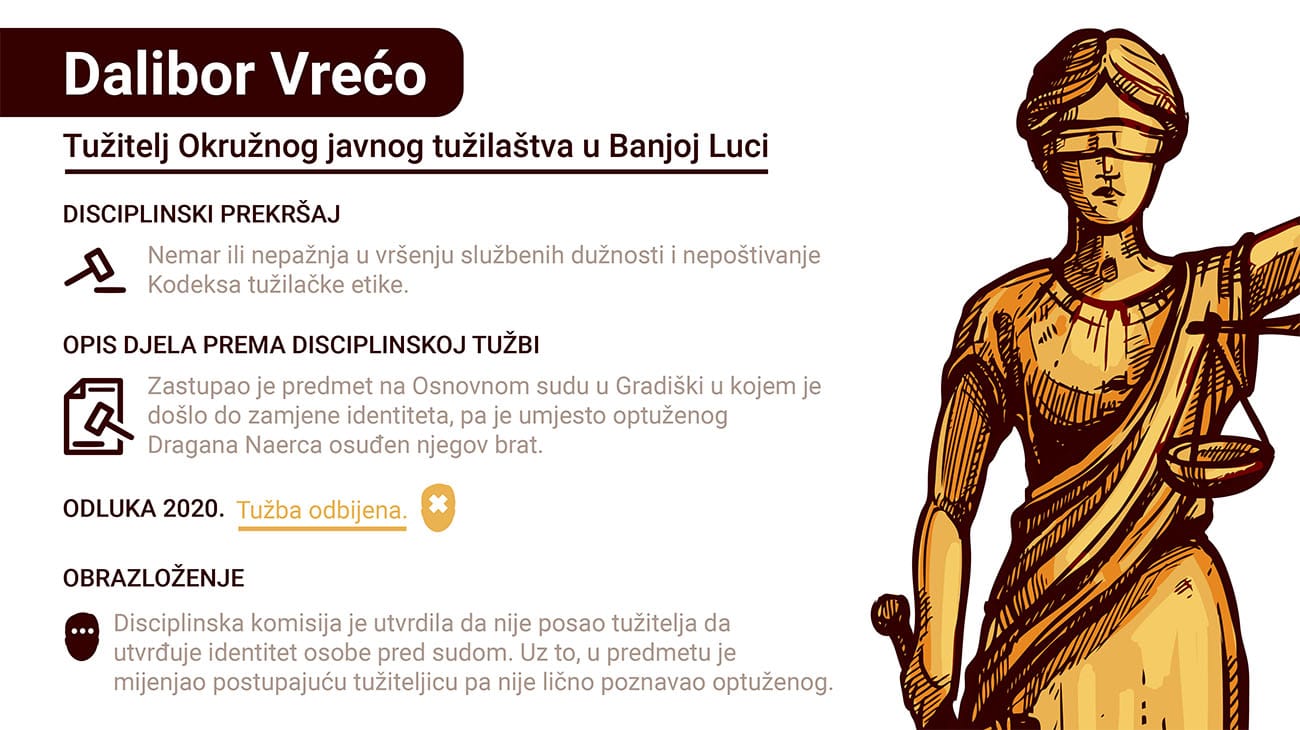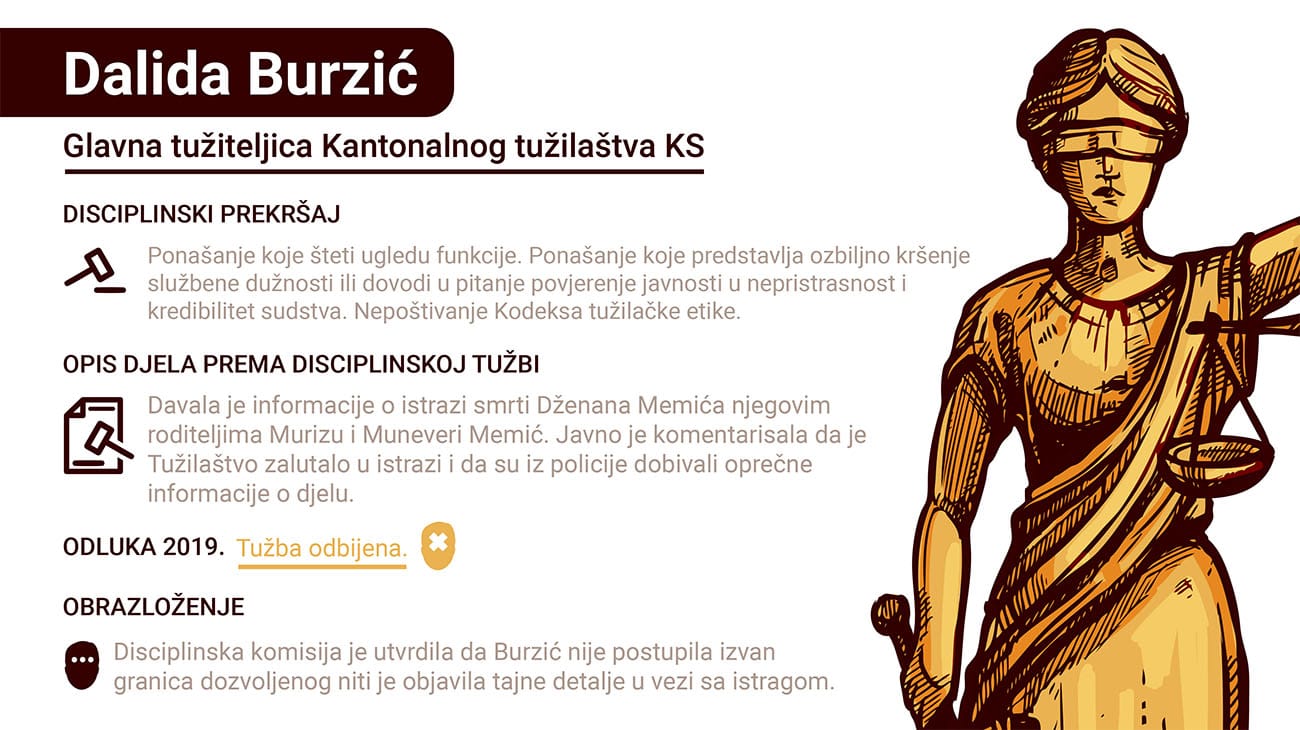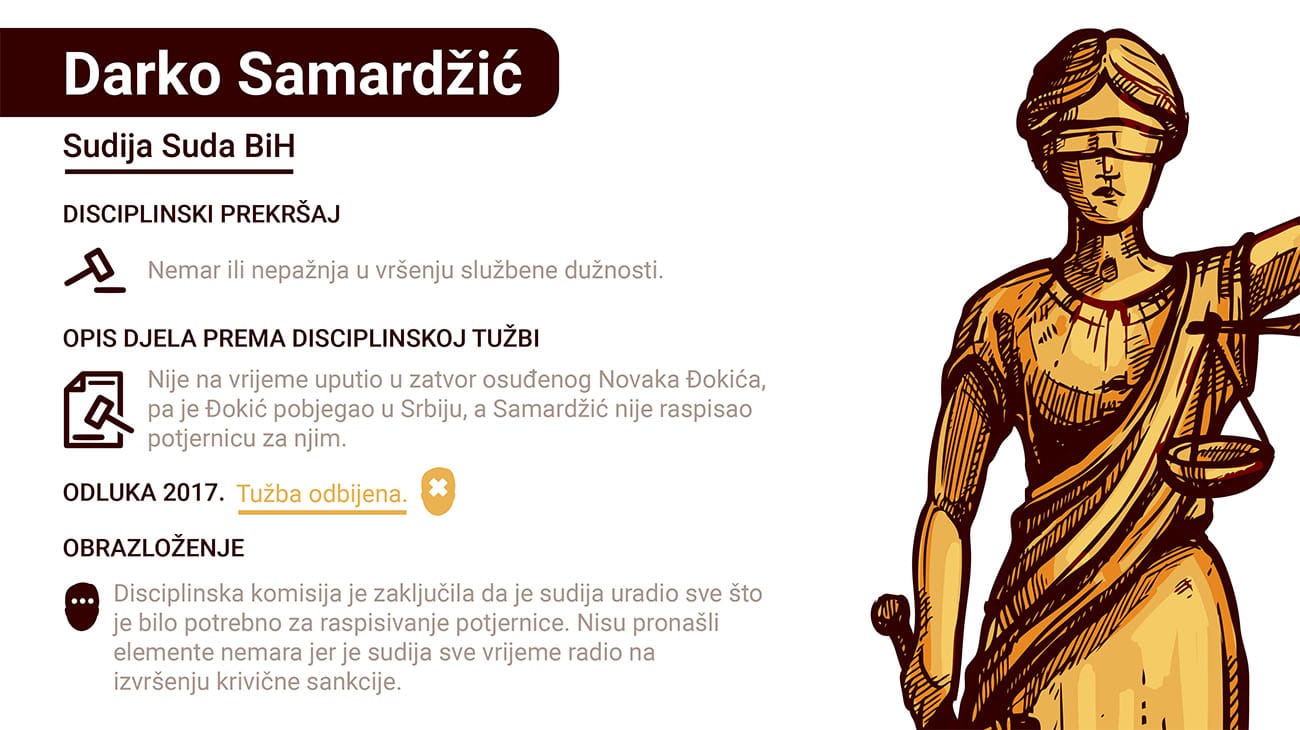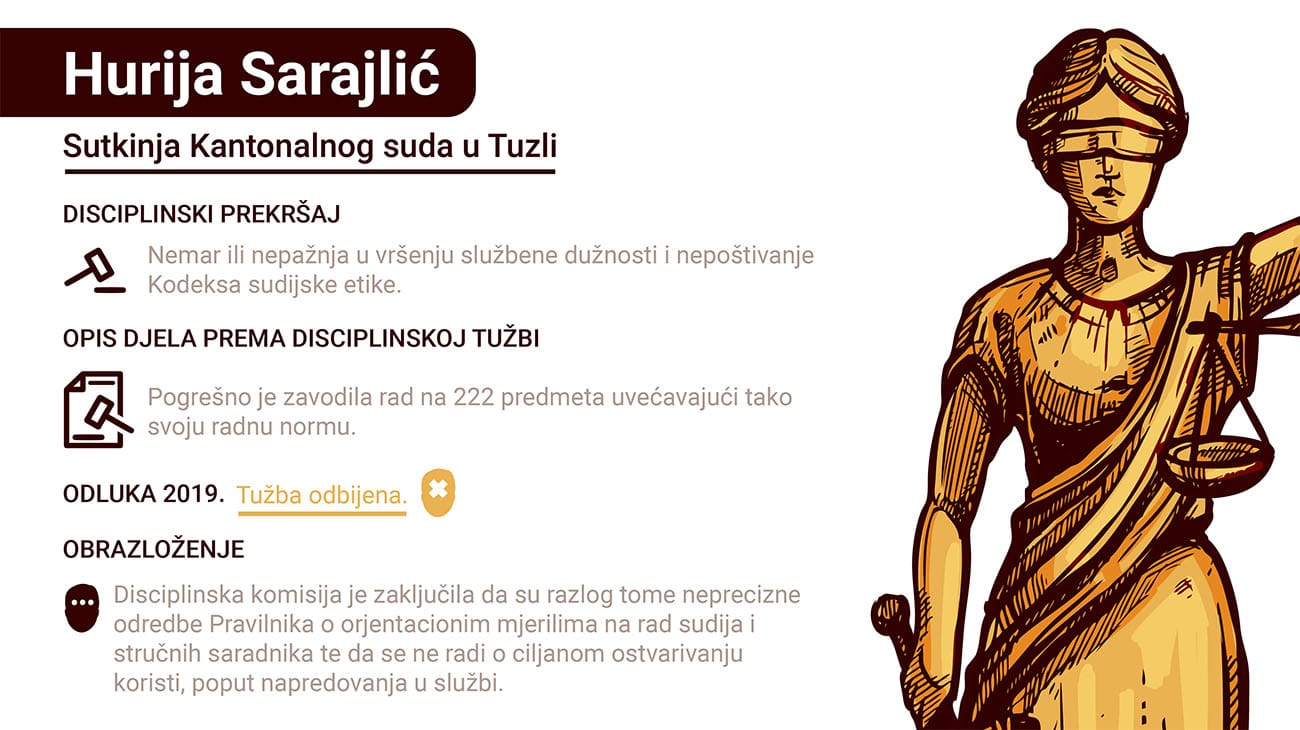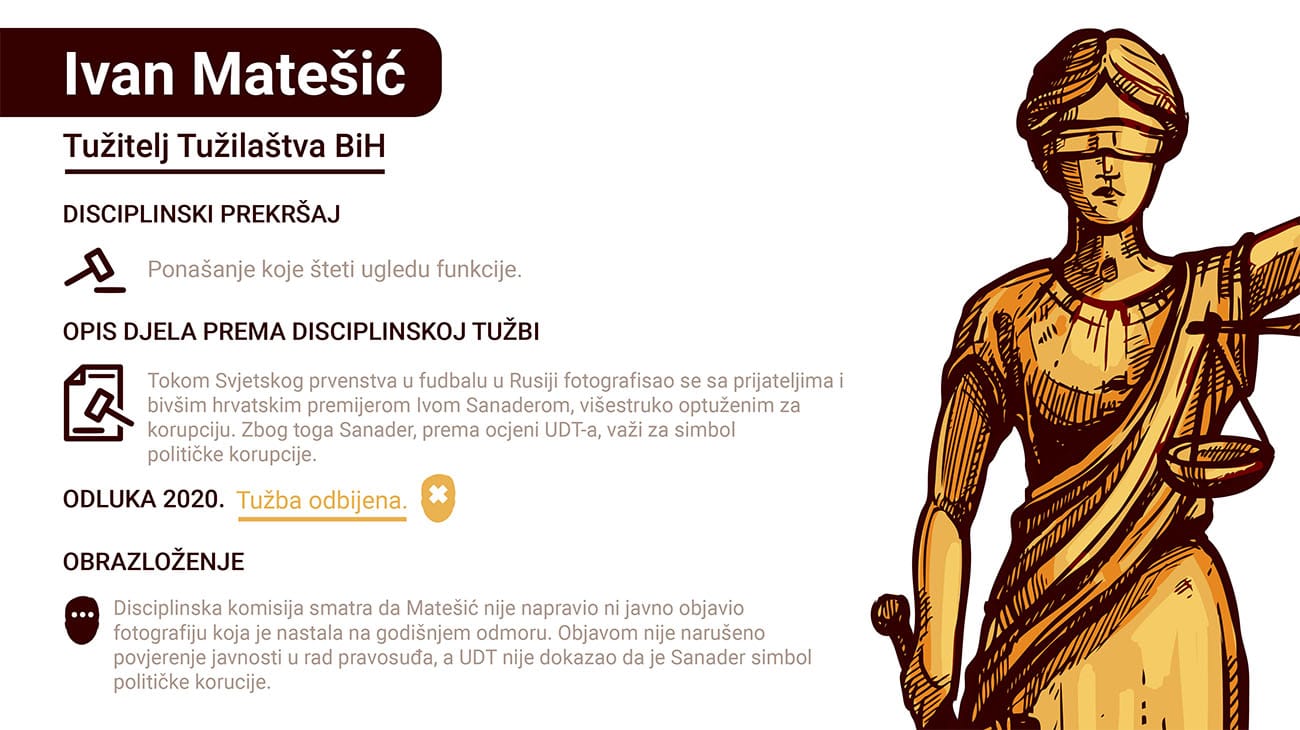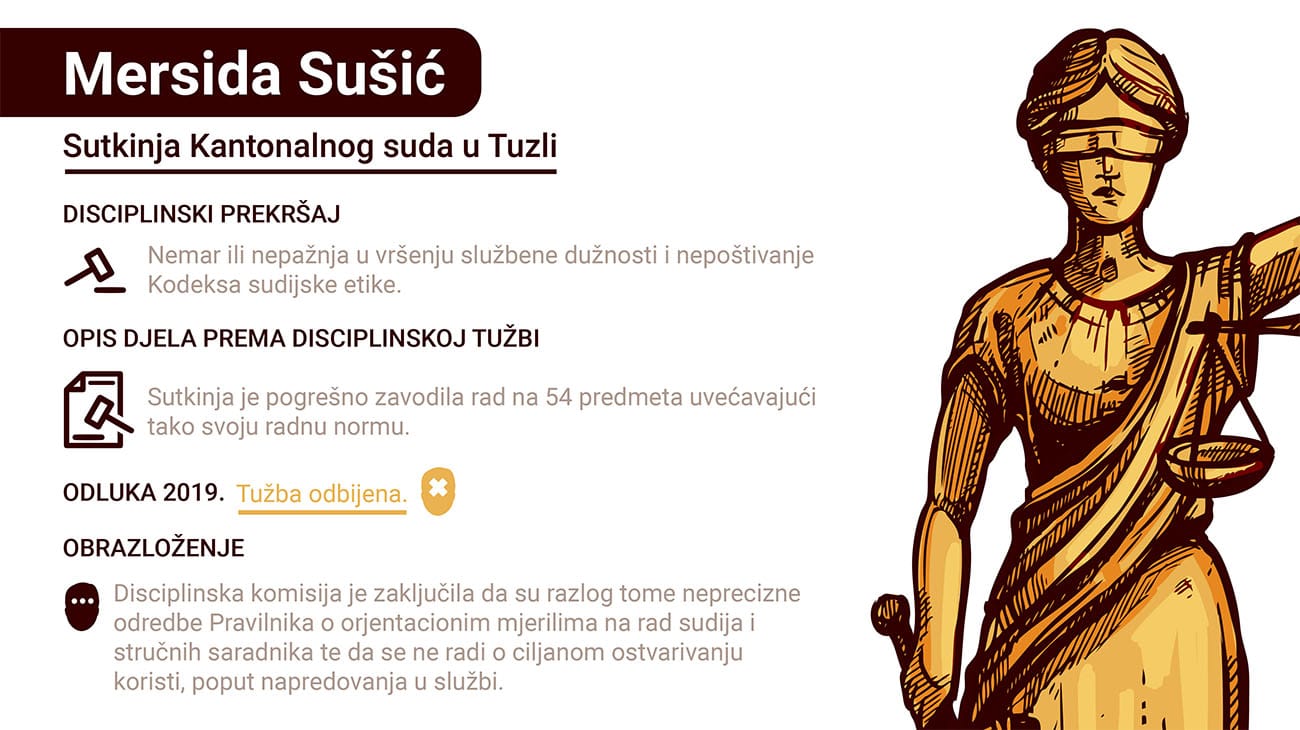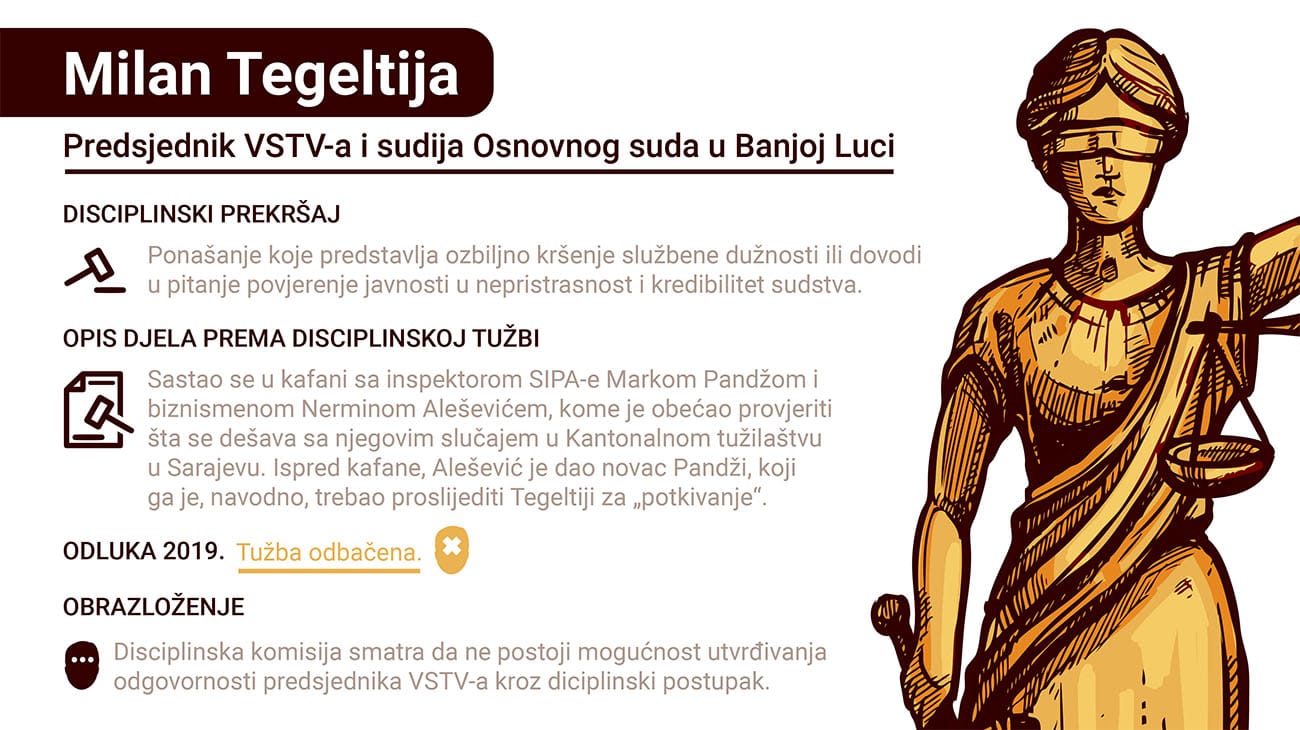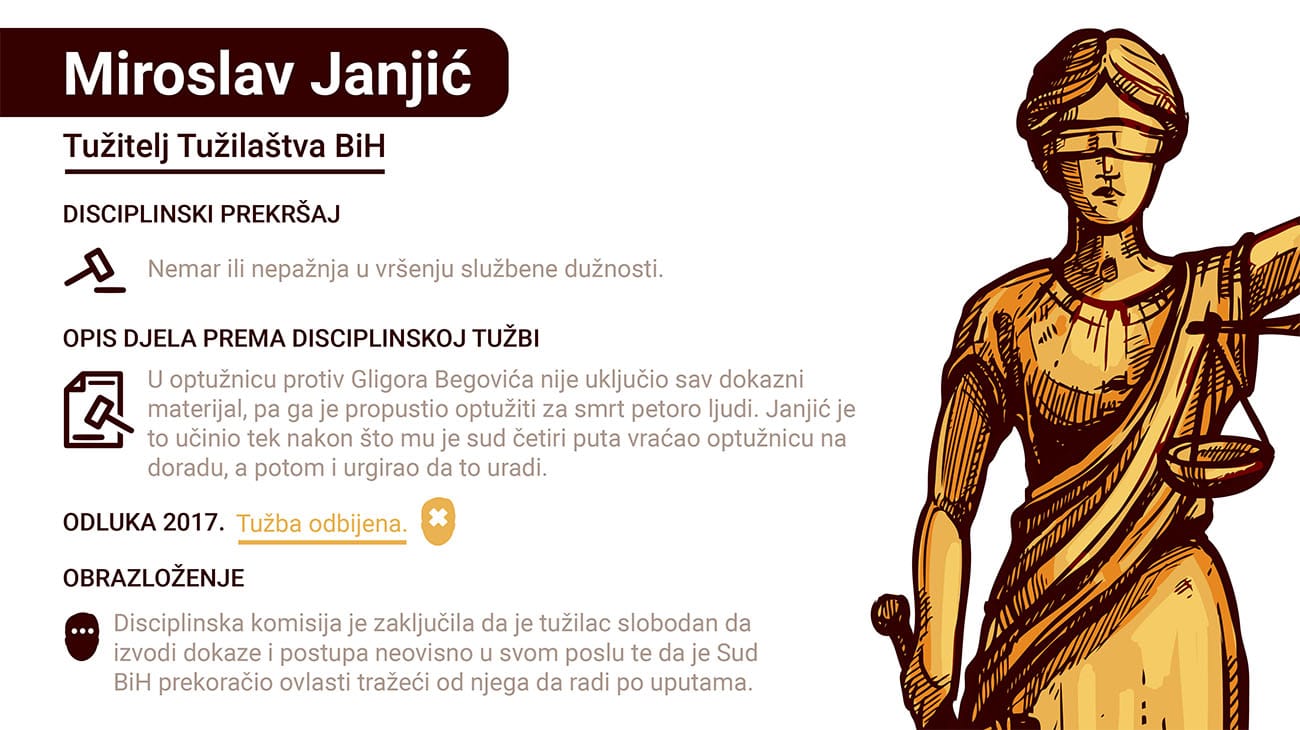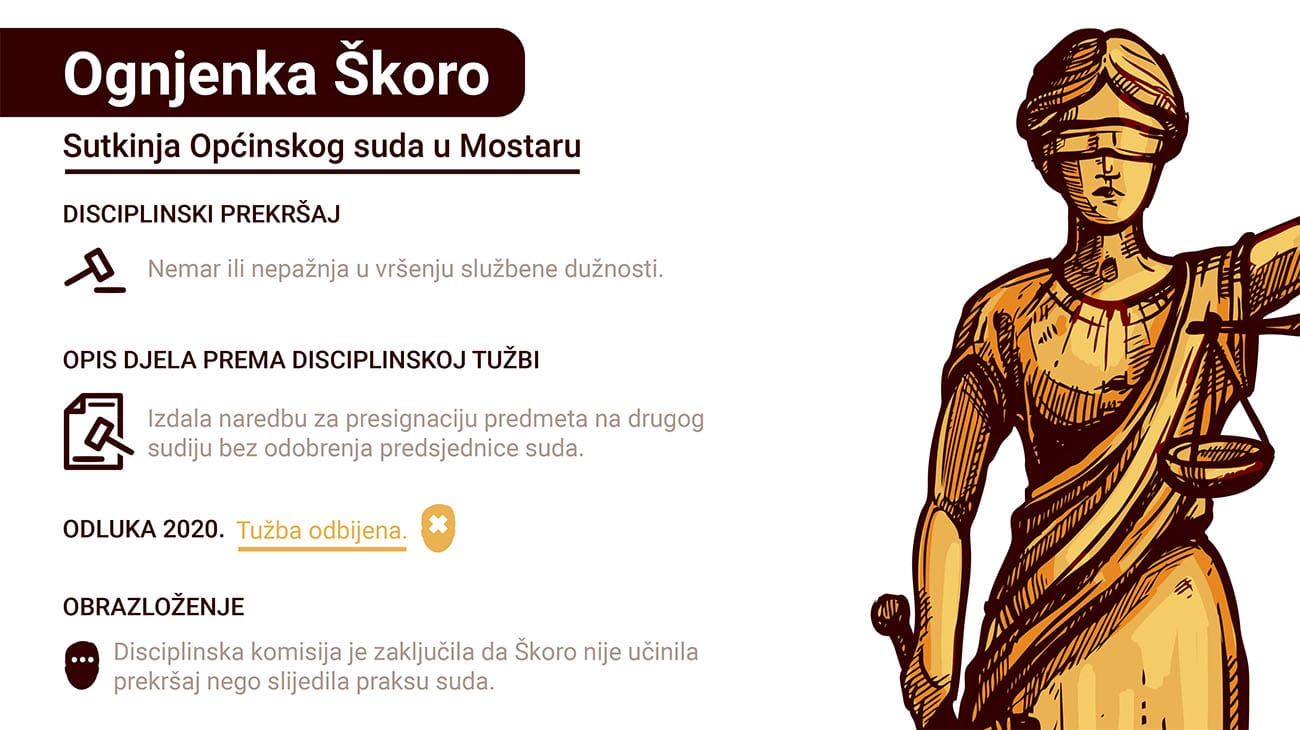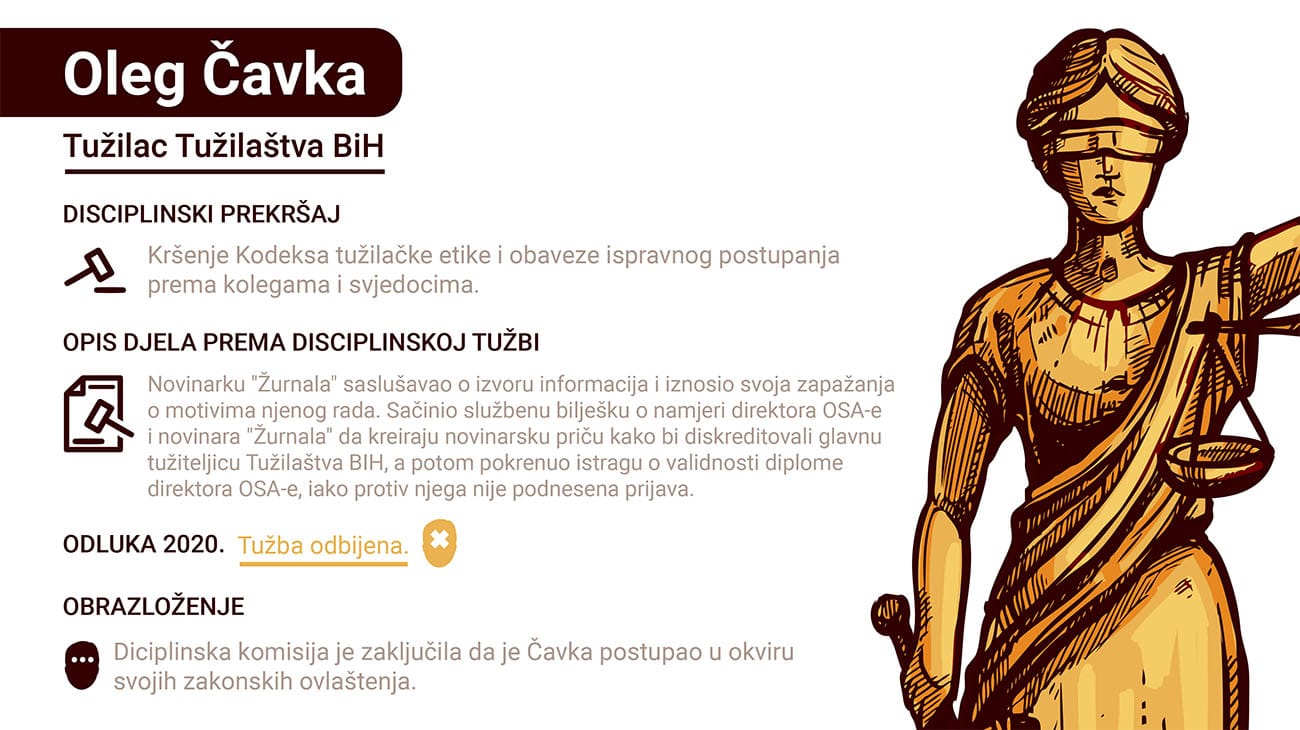Judge Milan Tegeltija walked into his old-new job at the Banja Luka Basic Court, smiling and relaxed. He has just returned from the fairytale beaches of the Maldives where he and his wife spent their vacation between two jobs.
Late last year, Tegeltija resigned from the position of the High Judicial and Prosecutorial Council (HJPC) to continue his career in the Banja Luka court, although he left the HJPC after events that called into question his credibility. He has been taped twice discussing pending cases and employment in the judiciary. He claims that he resigned due to personal security and loss of trust in his colleagues.
“The video is not the problem. The problem is that the members of the Council allowed themselves to discuss something unlawful [recordings, author’s note] in the first place”, Tegeltija told the CIN reporters.
The HJPC disciplinary commission did not conduct a procedure to determine his disciplinary liability claiming that “there has been no legal basis for such an action”, which was a precedent in their decisions.
At the same time, over the past four years, they have acquitted twelve other judges and prosecutors charged by the Office of the Disciplinary Counsel (ODC) with neglect and misconduct that damage the reputation of the professional community.
“It is really discouraging in terms of the further actions of the Office of the Disciplinary Counsel”, says prosecutor Mirza Hadžiomerović.
Exempting the president from the law
In May 2019, disciplinary action was brought against the then president of the HJPC, Milan Tegeltija, for misconduct that undermines the public image of the judiciary. At that time, a video was published in which Tegeltija was talking to businessman Nermin Alešević in a cafe about problems in his court proceedings. The recording shows the former president of the HJPC asking Alešević for a case number to “see what he can do” for him. In front of the cafe, Alešević handed over the money to the inspector of the State Investigation and Protection Agency (SIPA), Marko Pandža, who allegedly was supposed to pass it to Tegeltija for “doing the favor”.
“Žurnal” published the video showing the misconduct of the HJPC president, which caused massive public outrage. The Prosecutor’s Office of BiH launched an investigation, which showed no violation of the criminal law, but the disciplinary counsel, Mirza Hadžiomerović, thought that the president is ought to be disciplined. He filed a lawsuit before the HJPC Disciplinary Commission, alleging that Tegeltija’s conduct undermines public confidence and cast doubt on the impartiality and credibility of the courts.
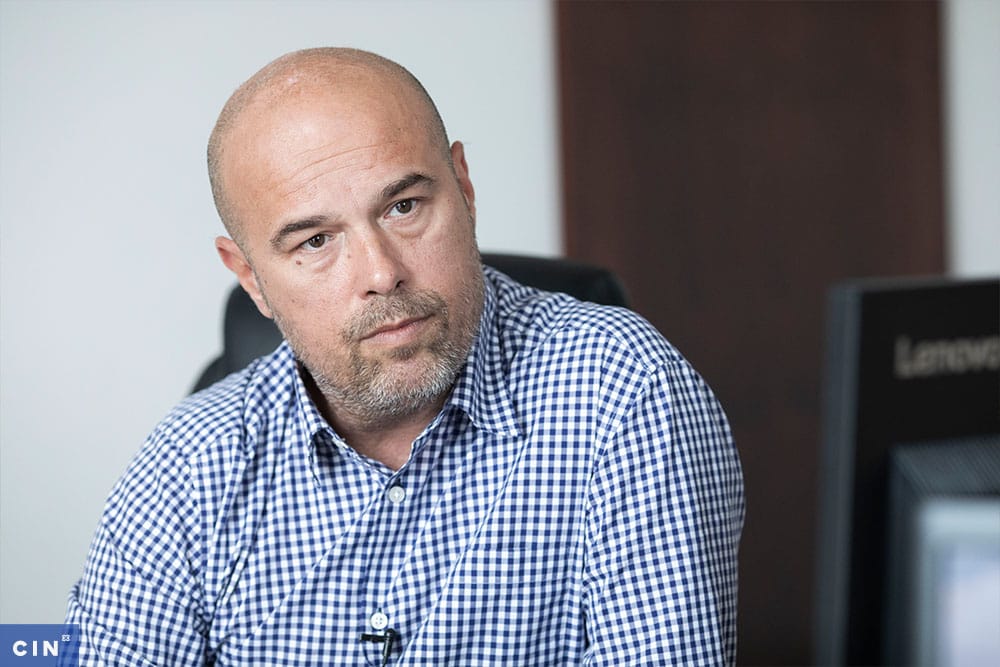
Tegeltija’s defense claimed that the provisions of the Law on Disciplinary Responsibility cannot apply to the president of the HJPC because, although a judge by profession, he does not work as one but executes a managerial (presidential) function.
“What is allowed to the Council members, i.e., vice presidents is not allowed to judges,” says Tegeltija, explaining that members of the HJPC, unlike judges and prosecutors, must have the freedom to speak about the judicial policy problems.
The members of the Commission accepted these arguments and concluded that no proceedings reviewing the conduct of judges could be instituted against the President of the HJPC. They failed to take into account the fact that Tegeltija was appointed to the HJPC as a judge of the Basic Court in Banja Luka and that, in addition to compensation for the work as a president, he also receives the salary for being a judge.
For the first time in sixteen years of ODC’s existence, a disciplinary lawsuit was dismissed without conducting disciplinary proceedings. Both Jukić and Tegeltija hold that the leaders of the HJPC can be sanctioned for violating the rules, but not through disciplinary proceedings but by voting of the Council members.
“The OSCE report very clearly stated that this interpretation of the regulations, to put it mildly, is inappropriate”, says the disciplinary counsel Hadžiomerović.
Judge Selim Karamehić, the only member of the six-member first-instance and second-instance disciplinary commissions who voted for the disciplinary proceedings, agrees with him.
“Milan Tegeltija is a judge and as such he is a judge all the time. For as long as he is a judicial officeholder – be it as an HJPC member or HJPC president – he is a judge and as such he is subject to the provisions of the law and rules of procedure on disciplinary responsibility, said Karamehić.
Tegeltija remained president of the HJPC for a year and a half after the charges were dismissed. And then, at the end of 2020, a new video came out showing his discussion with the former HJPC member, Miljana Buha, about employing her sister as a judge. Public dissatisfaction escalated and he resigned from the position of president of the HJPC. He will not stay in the Banja Luka Basic Court for long, he says: “Because I don’t see myself in the judiciary.”
Controversial photography in non-controversial circumstances
The limits of acceptable professional conduct were also tested in the disciplinary proceedings against the prosecutor of the BiH Prosecutor’s Office Ivan Matešić.
In June 2018, published was a photo of Matešić posing with former Croatian Prime Minister Ivo Sanader and friends at the World Cup in Russia. The photo went viral on social networks and stirred a lot of negative reactions from the public.

Disciplinary counsel Hadžiomerović filed a disciplinary action against Matešić, claiming that his conduct has damaged the reputation of the prosecutor’s office. He explained that Sanader is standing trial in several cases and is publicly perceived as a symbol of political corruption.
Matešić refused to talk to CIN but explained in disciplinary proceedings that the photo was taken on vacation while he and his friends were waiting for the start of the Croatia-Nigeria match in Kaliningrad, Russia. The former Croatian Prime Minister and his friends happened to be in the same cafe. Matešić told the commission that the two groups got into quarrel because a friend of his tried to secretly take a picture of Sanader, so someone suggested a joint photo to calm the situation. Sanader was not convicted at the time, Matešić added in his defense.
Dragomir Vukoje, a member of the disciplinary commission and a judge of the Court of BiH believes that the commission did right by accepting the explanation of prosecutor Matešić and rejecting the lawsuit.
When asked whether this sends a message to judges and prosecutors that taking photos with defendants is acceptable, he argued that it was not his job and that in the disciplinary proceedings they only need to stick to the facts.
“I know nothing beyond that nor do I want to know”, judge Vukoje said.
In the reasoning of the decision, the commission members wrote that the disciplinary counsel failed to prove that Ivo Sanader was a symbol of political corruption or that the photograph undermined the public confidence in the work of the Prosecutor’s Office of BiH and the judiciary as a whole.
“I admit, without theorizing much, we did provide somewhat weak, unprofessional, and imprecise reasoning”, says Judge Karamehić, adding that there were debates and views that the judge should be sanctioned, but most members of the first instance commission, and later the second-instance commission decided to dismiss the lawsuit.
“I admit that such a decision was a mistake, and obviously, after that, we had the cases of photoshoots, socializing (Tegeltija, author’s note)”
Criminal charges because of disciplinary proceedings
Judge Karamehić says that in some cases, the ODC is taking disciplinary actions for conduct that is not a disciplinary offense, as was the case against state prosecutor Oleg Čavka.
In 2020, he was charged with “obvious violation of the obligation to act properly” due to the way he questioned journalists who reported the offense about their sources, made official notes about the intention of the director of the State Intelligence and Security Agency (OSA) Osman Mehmedagić to discredit him in the media and then launched an investigation into the validity of his diploma. The ODC provided 26 pieces of material evidence in support of the charges, mostly prosecutorial orders, requests, and summonses.
The ODC considered he had been using the function to settle accounts with the director of OSA.
During the ODC investigation prompted by the criminal report filed by a journalist of Žurnal, Čavka claimed to have received information about suspicious diplomas of the heads of police agencies, and so he decided to check it. He received information on education from all directors of police bodies, except the director of OSA. After that, he revealed that Mehmedagić enrolled in the university based on a revoked student log-book. When asked by a CIN reporter why he was interested in checking Mehmedagić’s diploma, he said: “Because it is absolutely unacceptable for a normal prosecutor for the director of that Agency to have a secondary school diploma,” said Čavka.
The disciplinary commission found Čavka to have acted in accordance with his legal powers and released him from liability.
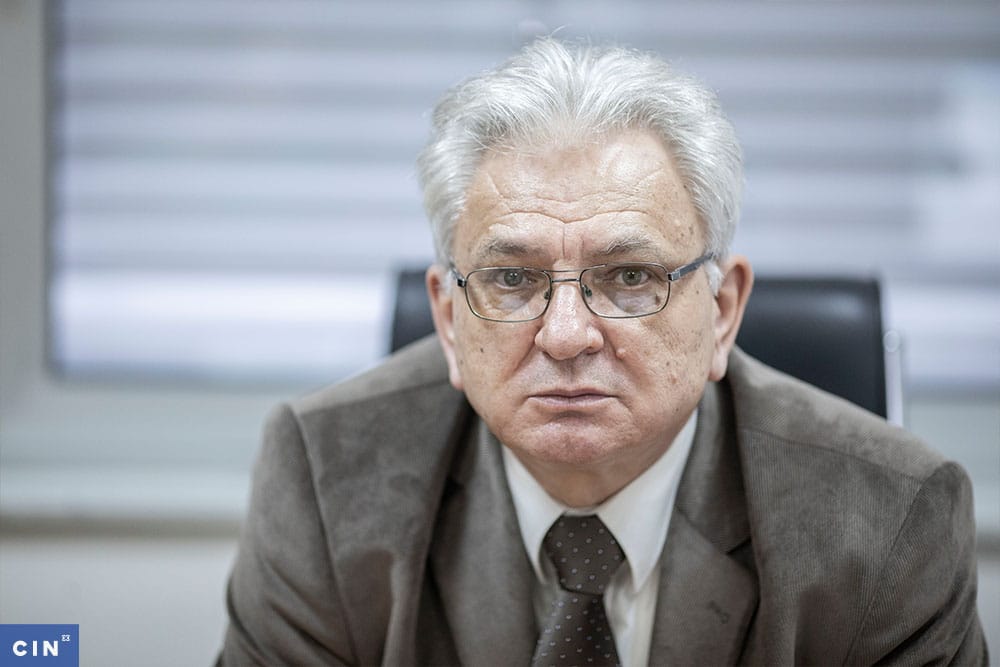
“I did not see the elements, I did not find the elements that ODC stated in the lawsuit,” says Karamehić.
Being subject to disciplinary proceedings, Čavka had to stay out of the investigation into the diploma of the OSA director, so the investigation was stopped. He blames the disciplinary counsel Hadžiomerović for that, whom he reported for the “obstruction of justice”.
„(…) “The goal here was not to stop anyone from acting, but simply to sanction the established professional misconduct in that case,” says Hadžiomerović.
Penalty for public speech
BiH Court Justice Branko Perić feels that disciplinary procedures should be used to establish standards for the conduct of judges and prosecutors, making it clear to everyone what is allowed and what is not.
“It is so perplexing now. One disciplinary commission convicts, the other acquits”, says Perić.
He himself was subject to disciplinary action in 2017, among other things, for publicly commenting on “pending” cases. [ODC] considered such conduct could harm fair proceedings and that it constitutes a serious breach of official duty, which undermines the public’s confidence in the impartiality and credibility of the judiciary.”
The accused justice Perić claimed that a judge has the right to freedom of expression and to comment on the work of judicial institutions, as they are most competent to speak about it. He claimed the ODC lawsuit had taken some statements out of the context.
The disciplinary commission accepted his arguments and rejected the lawsuit. They argued in the reasoning that Perić’s actions did not affect the trials nor did they undermine public confidence in the courts.
“You cannot allow the situation where judges and prosecutors will be suspended and charged only for you to drop the charges and acquit them. That is inadmissible”, Perić said during the proceedings.
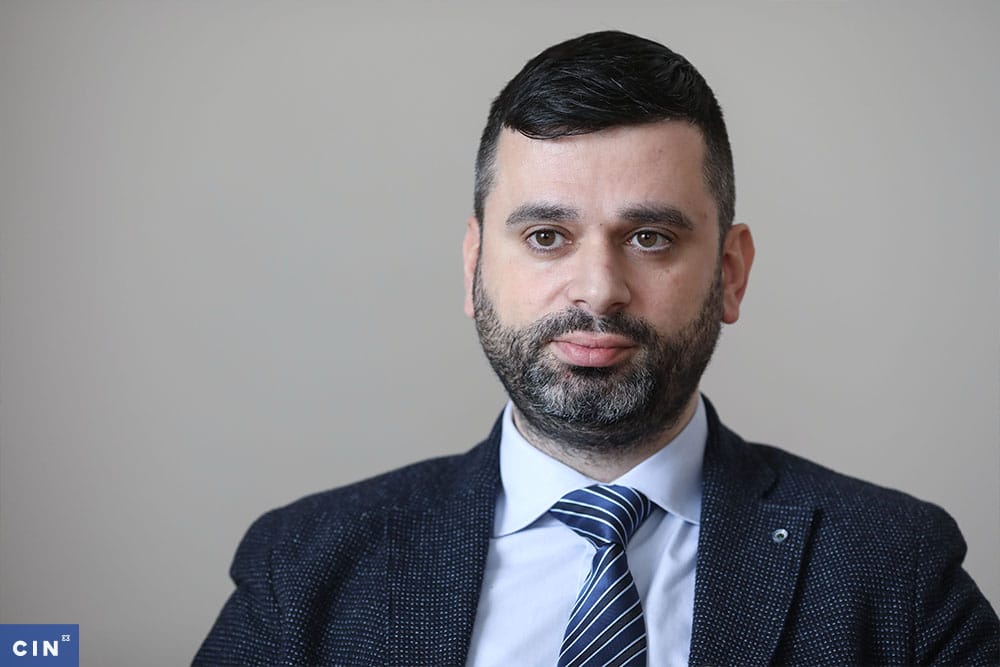
Members of the ODC also see problems in the disciplinary proceedings. According to Hadžiomerović, the lawsuit being rejected is not a problem, for as long as such a decision is clearly reasoned, because the reasoning gives them guidance for the further work. “Unfortunately, often do we see the key facts in disciplinary proceedings not being adequately explained, in a clear way, he says.
Justice Perić expected his case to stir a debate within the professional community and set the standard regarding the conduct of judicial officeholders, but this did not happen.
“How can the ODC decide if I exceeded [my powers] if they have no objective criteria?”, says Perić.
Chief Disciplinary Counsel, Alena Kurspahić Nadarević in her report to the Parliamentary Committee tasked with establishing the state of play in the justice sector expressed her concern about an increased number of proceedings concerning ethical problems in the work of judges and prosecutors, and frequent divorce of opinions of the commission members on sanctions. In some situations, the range of proposed sanctions in the same case included from very lenient to the most severe sanctions such as dismissal.
“After so many years (…), I do not think that there should be such a wide range and such divergent opinions by the members of the Council – from “acquitting” to “dismissing from judicial office”, says Kurspahić Nadarević.


